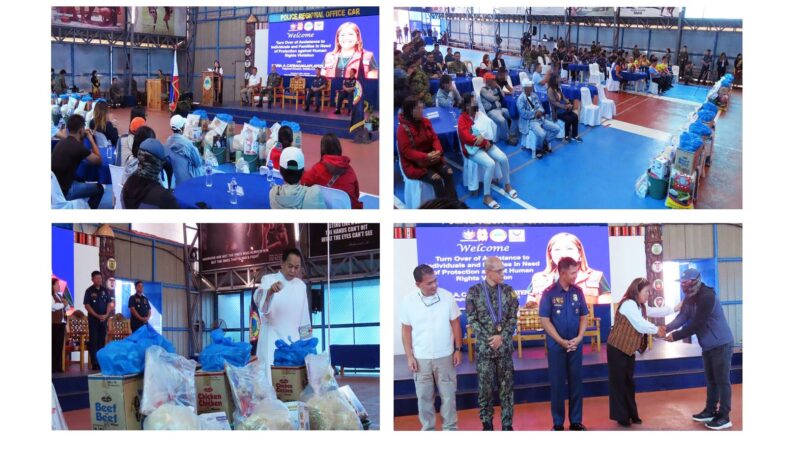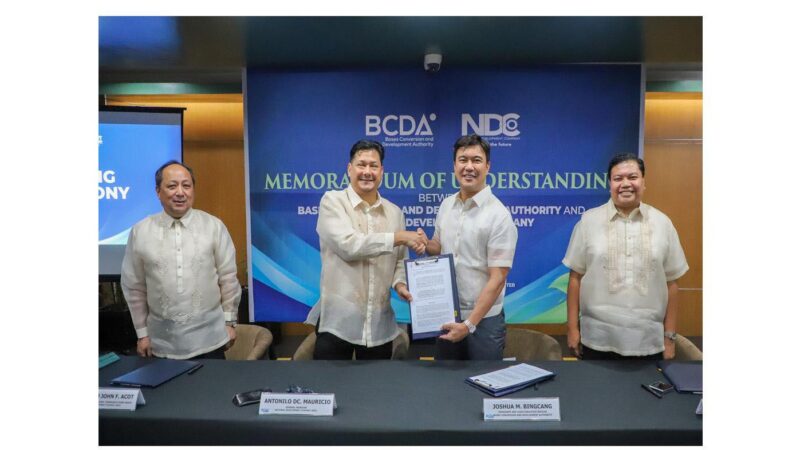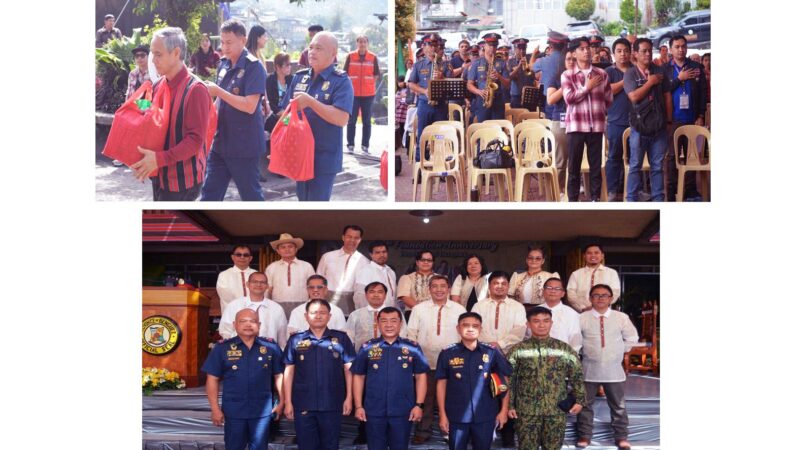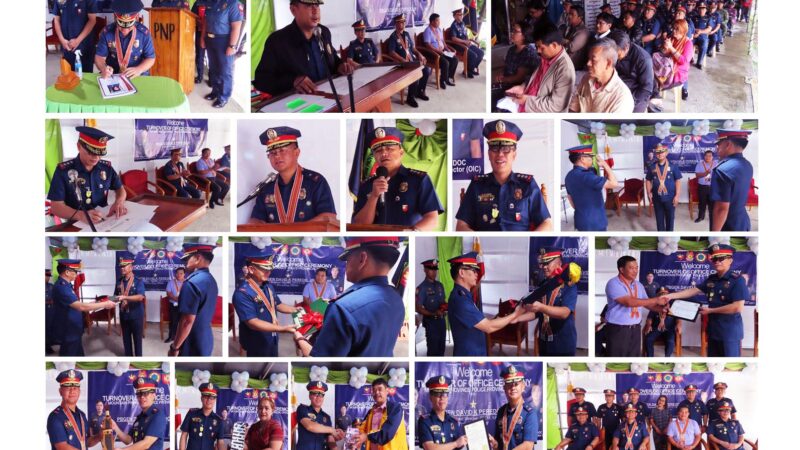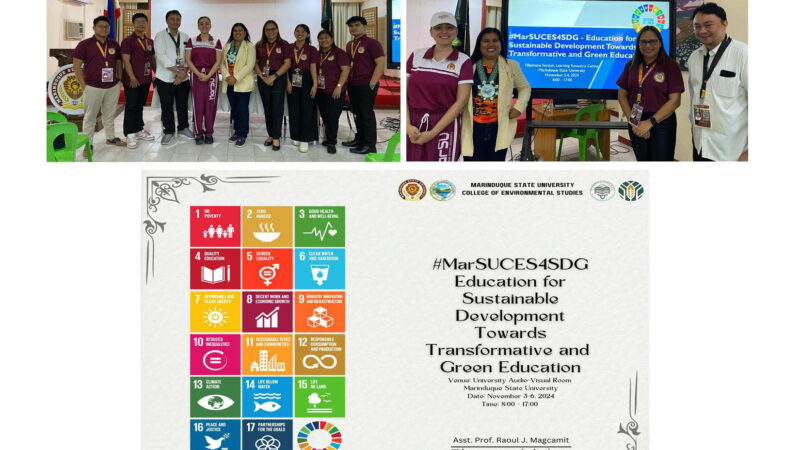Anti-dam groups troop to NCIP over FPIC inconsistencies, conduct dam exposure tour
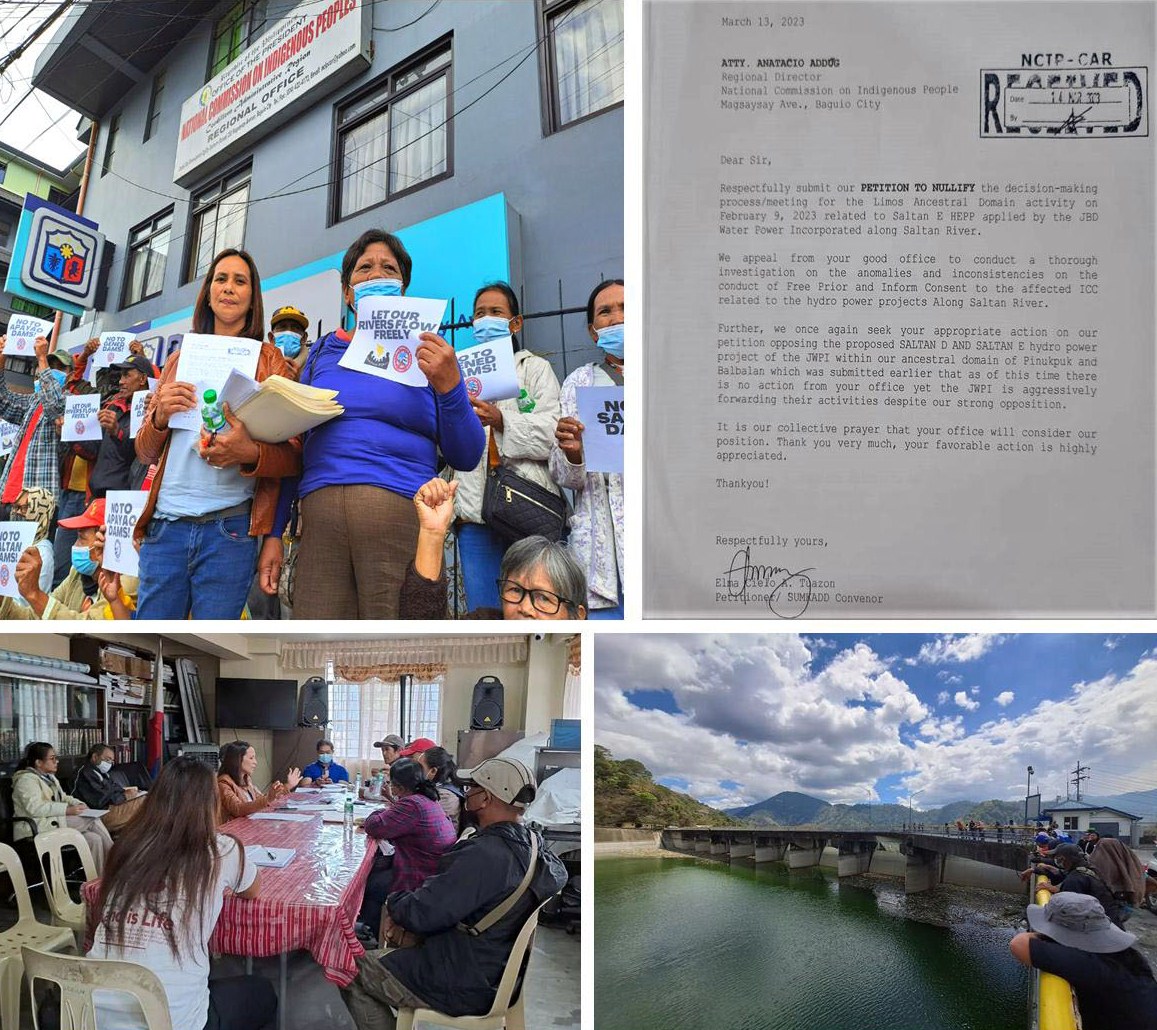
(Top left photo) Filing of petitions and complaints at the regional office of the National Commission on Indigenous Peoples-Cordillera (NCIP-CAR) (Below left photo) Dialogue with NCIP Regional Director Atanacio Addog at the NCIP Regional Office in Baguio City. (Below right photo) Ocular visit of delegates to the Ambuklao Dam. Ptr. Virgil Aniceto of the Regional Ecumenical Council of the Cordillera (RECCORD), who spent a long time of service in Bokod, explained the parts of the dam and the resulting damages at the time of its construction and beyond. (CPA File photos)
Dam-threatened Kalinga tribes along with advocates trooped to the regional office of the National Commission on Indigenous Peoples- Cordillera (NCIP-CAR) to petition the dams proposed along the Saltan river in Kalinga.
Indigenous peoples from the municipalities of Pinukpuk, Balbalan, and Tabuk in Kalinga mark this year’s International Day of Action Against Dams and for Rivers (IDAAD) with a petition filed against JBD Water Power Incorporated’s (JWPI) hydroelectric power projects at the NCIP regional office in Baguio City today, March 14, 2023. Said petition seeks the nullification of the result of the Free Prior and Informed Consent (FPIC) among the Limos tribe last February 9, 2023, whatever the results may be, on basis of inconsistencies in the process.
According to Elma Tuazon, a representative from the Limos tribe and lead convenor of the Sumkad ti Umili para ti Matagoan, Karbengan, Aglawlaw, Daga ken Dayaw (SUMKADD), the petition submitted is nullifying “the decision-making process/meeting for the Limos Ancestral Domain activity on February 9, 2023, related to the Saltan Hydroelectric Power Project”, proposed by the JWPI along the Saltan River in Kalinga. “We have since petitioned against these dam projects along the Saltan River since 2022, we are reiterating our opposition to these proposed dam projects.”
Resolutions against the JWPI dams were adopted by several barangays in Balbalan and the municipality of Pinukpuk as early as February of 2022.
A dialogue with NCIP CAR Regional Director Atty. Atanacio Addog was also conducted, where the demands for NCIP’s accountability and strict monitoring of the FPIC process were floated. Continuing talks between the petitioners and NCIP will soon determine the outcomes, but petitioners remain wary of NCIP’s expected actions considering that Addog is one of the accused in the administrative charges including 158 counts of estafa, falsification, and use of falsified documents filed by the dam-threatened Isnag indigenous peoples of Kabugao on December 2022 and January 2023.
Dams Learning Exchange
Prior to the petition filing, the petitioners from Kalinga were accompanied by delegates coming from dam-threatened communities in Kabugao, Apayao for a two-days Dam Learning Exchange. The Indigenous people’s delegation conducted an educational tour at the Ambuklao Dam site in Bokod, Benguet.
Bokod town Mayor, Honorable Thomas Wales, in his message to the delegates during their courtesy call said, “Think of the next generation, not only the now. Consider them when you make your decision regarding those projects. Our decision should not limit the future generations’ options for development as they see fit for them. This is for the sake of us all.”
In the community exchange, Ambuklao Barangay Captain Monroe Galasgas related the experience of their community during the building of the then government-owned 75MW Ambuklao Dam through the National Power Corporation (NAPOCOR). “We had to leave our community. Some of our families were relocated to Nueva Vizcaya and Palawan however, our families eventually returned to Ambuklao because the relocation site was undeveloped,” he said.
The dam was decommissioned in 1999 due to silt accumulation. It resumed operation in 2011 after it was rehabilitated by SN Aboitiz. It was since then upgraded to 105MW capacity. SN Aboitiz now owns and manages the facility, but last January this year, it was reported that Bokod indigenous peoples rejected the company’s bid to continue the said dam’s operation through a resolution of non-consent submitted to the provincial office of NCIP Benguet.
According to the community, a large portion of the lands covered by the dam compound is part of their ancestral domain. “We are still reclaiming some of our lands until now,” Galasgas added.
“A lot of our questions have been answered regarding the long-term impacts of the dam on the lives and livelihood of people,” said Eusebia Luban, an Isnag woman from Kabugao, Apayao who attended the dam expo and tour.
“Balunen me dagitoy nga adal tapno ibingay mi met kadagiti kakailian mi,” she added.###


